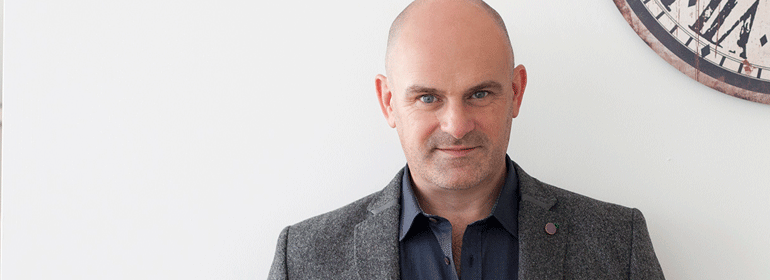With the ever expanding numbers attending Dublin Pride, what’s the way forward for its post-parade party, asks Brian Finnegan.
This year Dublin Pride finds itself at a crossroads that’s been coming for a long time and although a fix has been put in place for 2014, the problem still looms large for next year.
In 2011, when the numbers attending the Dublin Pride parade after-party had grown too large for the Wood Quay Amphitheatre, plans were put in place to relocate it to Merrion Square, expanding what was originally a community stage show to a ‘Pride Village’, complete with stalls, attractions and most significantly, a bar. This year, according to the Dublin Pride organisers, more people than ever are expected to turn out for the parade and post-parade celebrations in the capital.
The prediction left them in a bit of a quandary a few months ago when, because of health and safety concerns, the board of Dublin Pride were told by Dublin City Council (DCC) that a Pride Village at Merrion Square would have to be managed with a strictly limited number of entry tickets, or an alternative venue would have to be found to accommodate the predicted numbers.
The Phoenix Park was floated as an outside option, but essentially it was too late to organise an event of the size that would justify such a move. A ticket-only event at Merrion Square, where the parade culminates, would have resulted in chaos and bad feeling, as some people got in and some were left outside – hardly in the spirit of Pride.
The Dublin Pride board, to their credit, reached out and asked for feedback from LGBT community organisations before making any decision and the result is a pared-down event for everyone at Merrion Square, with a strong emphasis on political speeches from the key stakeholders in the fight for LGBT equality, who were almost left out of last year’s event.
The Right Way To Go This Year
Personally, I think this is the right way to go, particularly for the year that’s in it, when we need to be rallying the troops for the 2015 referendum on same-sex marriage. It is likely (I hope!) that by the time next year’s Dublin Pride comes along, we’ll be celebrating the forthcoming introduction of equal marriage, so this year the calls to action need to be heard.
If we do win the referendum before Dublin Pride 2015, the organisers can expect another huge jump in numbers and that leaves them with the same problem of what to do with the post-parade party.
The Phoenix Park option is not ideal. If the parade was routed out of the city to the park, there’s a long walk to the public event grounds at Farmleigh. Plus, the scale of the event would have to grow so much, it would be hard for the organisers to get by without either charging in or giving title sponsorship to a commercial entity, or both.
Lessons To Be Learned
Lessons can be learned from the history of London Pride, which has faced the same issues as Dublin Pride. In the early noughties, it went down the title sponsorship road, with a ticketed event in Hyde Park, a controversial move that ultimately turned Pride from a demonstration in commemoration of the Stonewall riots and against continuing injustice for LGBT people around the world, into a music festival. This year, the London parade will disperse at its final destination and various after-parties, both free and ticketed, will take place across the city. There will be no political rally when the parade ends. There is also no corporate sponsor. Instead the Greater London Authority is funding the festival over the next five years to the tune of half a million pounds.
In the light of these London developments, perhaps this year’s Dublin Pride is on track to the right solution for the expanding festivities. In his recent interview with The Outmost, Chair of the Dublin Pride board, Jason Flynn, brought up the idea of “a kind of multi-site festival, or a very heavily programmed campus-style chain of events, where you follow the programme from venue to venue around the city.”
Essentially, this is what London Pride has turned into, although it’s less a programmed chain of events than a set of disparate parties across the city, with an unofficial one taking over Compton Street in Soho. Dublin, because of its size, has the opportunity to be more cohesive than this, if that’s the direction the festival takes, much in the way Belgian Pride is staged in similarly sized Brussels. This approach, combined with some political rallying, either before the parade begins or at its end, might be the way forward.
Impromptu Street Parties
Of course, over the past few years, certain areas of Dublin have become locations for impromptu street parties, which can be argued serve to keep Pride central anyway. But eventually these unplanned street parties will be banned by the authorities because of rising health and safety issues. For example, GCN’s Mother street party has moved to an official location for the past two years due to such official concerns.
One way or another, what’s important is that Dublin Pride continues to be a key event in the Irish calendar. Coming only second to St Patrick’s Day on the country’s public events roster, the parade and its after-party are not only a celebration of LGBT identity, but also the identity of the Irish capital as an exciting, colourful, cosmopolitan city that wholeheartedly values LGBT culture. It is a statement of Ireland’s modernity and being counted with all the other countries that embrace diversity. Come to think of it, shouldn’t DCC be underwriting its expansion?
© 2014 GCN (Gay Community News). All rights reserved.

comments. Please sign in to comment.